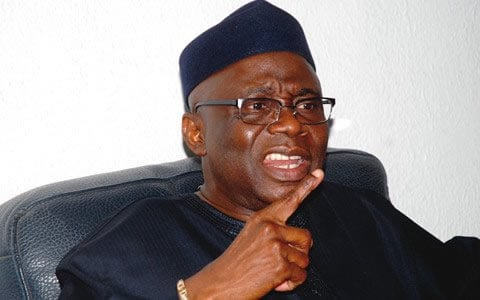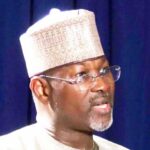
The presiding pastor of the Citadel Global Community Church, Pastor Tunde Bakare, said what Nigeria needed at this time was “Joseph-type leaders.”
Bakare made this statement while delivering a lecture, on Tuesday evening, at an event organised to celebrate the 80th birthday of an emeritus professor of History and former Ambassador of Nigeria to Germany, Professor Akinjide Osuntokun.
In the lecture titled, ‘The cutting edge philosophy of governance and the new Nigeria,” Bakare alluded to the Biblical story of Joseph, who, he said, “rose through adversity to become the leader of the most powerful nation in the world at the time and deployed the cutting-edge philosophy of governance to rescue not just one country, but the entire world from a global economic crisis.”
Bakare said Joseph deployed uncommon capacity to interpret dreams and proffer solutions to complex problems to help Pharaoh, king of Egypt, to “unravel an enigmatic economic forecast that came to Pharaoh in the form of a dream.”
He said this action promoted Joseph to becoming the “prime minister” of Egypt who was in charge of the country’s economic management.
The lawyer-turned-cleric said the dreams interpreted by Joseph were a “predictive model of a boom and burst cycle characterised by seven years of economic surplus to be replaced by seven years famine.”
The 2023 presidential hopeful said Joseph “enacted notable fiscal and monetary policies in both the boom and burst periods.”
Bakare said the governance model of Joseph preserved Egypt during global recession and made the country the greatest economic power of that age.
The cleric highlighted policy steps undertaken by Joseph in “the boom period” to include: “a tour of the land that led to a data-driven evaluation of the national resource and opportunity potential; a clear distinction between industrial and residential areas in such a manner that ensured that each residential city had an adjoining productive or industrial area with emphasis on the agro-allied industry; the establishment of a system of food reserves domiciled within the residential areas, which led to the institution of a national savings culture as well as a stakeholder mindset and responsible citizenship through taxation.”
He added that Joseph also “modelled national healing and reconciliation in the interest of the greater good. By reuniting with, and forgiving his brothers who had betrayed and sold him into slavery, Joseph extended the reach of his policies and programmes by prioritising reconciliation and reintegration. As Nelson Mandela did in South Africa in recent history, Joseph pivoted his nation building programme on the foundation values of truth and reconciliation thereby uniting a divided people.”
Bakare stated that Nigeria’s founding fathers modelled the country structurally on the principles of cutting-edge nation. He maintained that the founding fathers of Nigeria structured the nation along the lines of true federalism with each region as “a semi-autonomous, geo-economic, geo-political entity with some form of zonal economic cluster, agriculture and agro-allied industrialisation were the main stays of the economic clusters.”
He explained that each region was distinguished by its unique natural resources and agricultural produce and proceeds from its products were used to develop the region with a percentage paid to the Federal Government as tax.
Bakare pointed out that the return to a unitary system of government from true federalism as well as the discovery of oil, which, according to him, turned Nigeria into a “mono-product economy,” made the country to be far behind countries such as Indonesia, Singapore and Malaysia, “with which we more or less commenced the journey of economic transformation.”
The cleric, however, said there was an opportunity to “right the wrongs of history” and work towards the emergence of a “new Nigeria.”
Bakare said, “As we approach a new dispensation in which we are about to elect the 16th head of government, I enjoin Nigerians to embrace the cutting-edge philosophy of governance.”
He stated that the sovereignty of the nation of Egypt, which he illustrated in his homily, rested with a monarch, Pharaoh, “but in the case of our nation, Nigeria, sovereignty rests with the people of Nigeria.”
He advised Nigerians to use their voting powers to “elect Joseph-type leaders who will re-engineer Nigeria in the direction of the cutting-edge nation.”
The event, which was simultaneously hosted in Dublin, Ireland (physically), and Zoom (virtually), was attended by dignitaries including the president of the Nigerian Academy of Letters, Prof Duro Oni; emeritus professor of English language and former vice chancellor, University of Ibadan, Prof Ayo Banjo; the first professor of Linguistics in Nigeria, Prof Ayo Bamgbose; distinguished professor of History and Strategic Studies, University of Lagos, Prof Ayodeji Olukoju, among others.
Copyright PUNCH.
All rights reserved. This material, and other digital content on this website, may not be reproduced, published, broadcast, rewritten or redistributed in whole or in part without prior express written permission from PUNCH.
Contact: [email protected]





